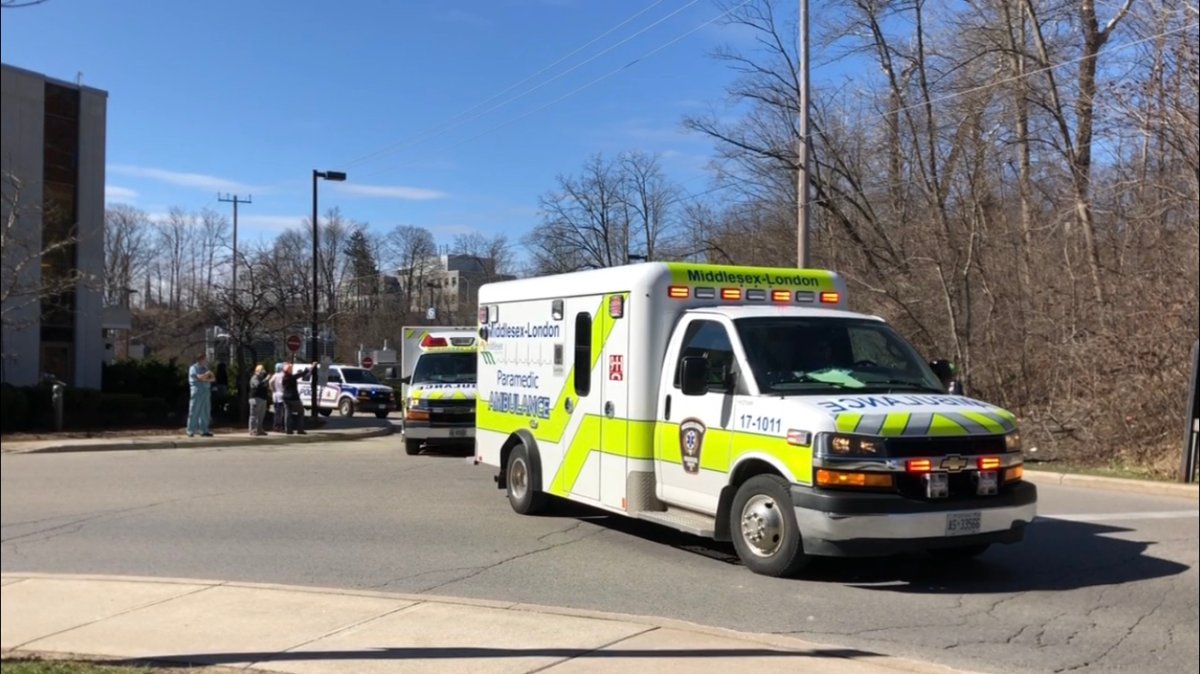London Emergency Services workers came together to show support for local health-care workers, emergency services personnel and community members on the front lines of the novel coronavirus pandemic.

A convoy of emergency services vehicles drove past the London Health Sciences University and St. Joseph’s campuses at 11 a.m. Wednesday.
The convoy was organized by the Middlesex-London Paramedic Service and included representatives from the London Fire Department and local police service.
“We are out there and in this together for the long run, and it was a great show of solidarity,” Colin Shewell, London fire platoon chief, said.
“We are just trying to show support and appreciation for all of our emergency service workers — the doctors, nurses and support workers in the hospital — to say job well done and we are with you for the long run.”
Shewell said that when the Middlesex London Paramedic Service first approached firefighters with the idea, it was an easy decision to join, and they are more than happy to get involved in any other events in the future.
Wednesday’s display of support was just the latest in a number of solidarity convoys and other initiatives taking place across the country and around the world to show support for the health-care workers on the front lines of the pandemic.
A second drive-by is planned for the London Health Sciences’ Victoria campus and Parkwood Institute at 2 p.m. on Wednesday.
Questions about COVID-19? Here are some things you need to know:
Health officials caution against all international travel. Returning travellers are legally obligated to self-isolate for 14 days, beginning March 26, in case they develop symptoms and to prevent spreading the virus to others. Some provinces and territories have also implemented additional recommendations or enforcement measures to ensure those returning to the area self-isolate.
Symptoms can include fever, cough and difficulty breathing — very similar to a cold or flu. Some people can develop a more severe illness. People most at risk of this include older adults and people with severe chronic medical conditions like heart, lung or kidney disease. If you develop symptoms, contact public health authorities.
To prevent the virus from spreading, experts recommend frequent handwashing and coughing into your sleeve. They also recommend minimizing contact with others, staying home as much as possible and maintaining a distance of two metres from other people if you go out.
For full COVID-19 coverage from Global News, click here.
- Posters promoting ‘Steal From Loblaws Day’ are circulating. How did we get here?
- Video shows Ontario police sharing Trudeau’s location with protester, investigation launched
- Canadian food banks are on the brink: ‘This is not a sustainable situation’
- Solar eclipse eye damage: More than 160 cases reported in Ontario, Quebec








Comments